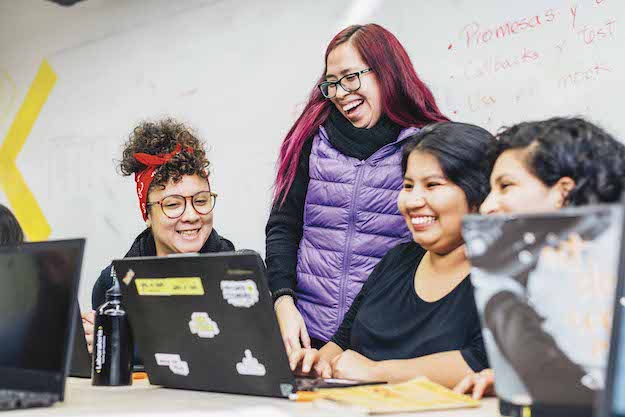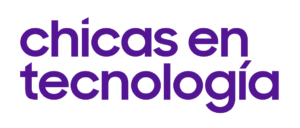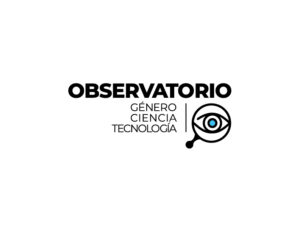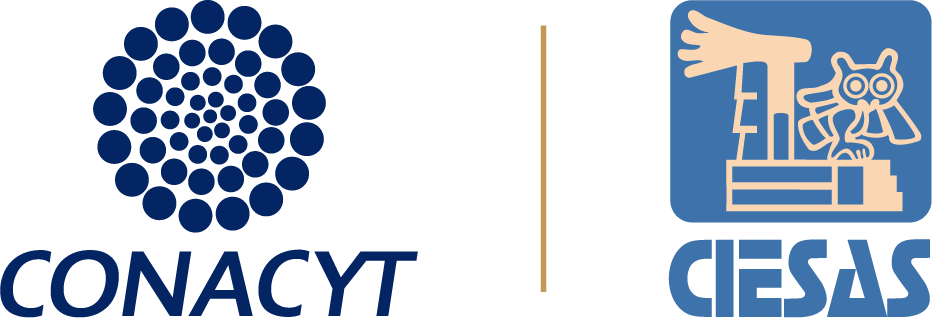This article is adapted from AQ’s special report on closing the gender gap | Leer en español
LIMA — Anais Olivares was always pretty resourceful. Growing up in Nueva Esperanza, an overcrowded low-income suburb on the outskirts of Lima, she had to be.
Without an internet connection in the house, Olivares did homework by adding five soles (about $1.50) at a time of data to a cellphone and using it as an intermittent — and not very reliable — personal hotspot. Other times she’d use the Wi-Fi connection at her uncle’s, repaying him by fixing up old, broken-down laptops he hoped to resell.
The result was that Olivares spent a lot of time on YouTube learning how to fix old computers, fostering a skill set and an interest that would, ultimately, pay dividends.
“I think I was always looking for a way to get out of that box of being a woman and having to be a señorita,” Olivares told AQ.
Olivares’ mother sacrificed to pay her way into a short-track graphic design program at a technical college. But after graduation, potential employers said she needed to learn several software programs she just wasn’t familiar with. Under pressure to help support her family, Olivares was looking for any kind of steady job when she came across Laboratoria — a nonprofit that trains young women, mostly from disadvantaged backgrounds, in computer programming.
A six-month boot camp at Laboratoria helped Olivares adapt her skills to a demanding job market, and eventually get work as a programmer at a telecommunications firm. Men outnumber women in programming fields in Latin America by nine to one, but Olivares is not alone — and Laboratoria is part of the reason why.
Started in 2014 by Peruvian tech entrepreneur Mariana Costa Checa, the organization’s primary goal is to bridge the tech gender divide, based on the belief that all women — and not just those from elite universities — can thrive in the male-dominated tech industry if given the chance.
“We unleash or find talent in tech (in places that are) otherwise considered unreasonable,” Karen Kelly, Laboratoria’s regional partnerships manager, told AQ.
The emphasis on low-income students is fundamental to Laboratoria’s approach. Enrollees only pay tuition if they get a job within six months of graduat ing, and then do so gradually over two years. The organization lends laptops to students in need and helps them prepare for job interviews and negotiate salaries.
More than 1,600 women like Olivares have graduated from Laboratoria’s boot camps as web developers and user-experience designers. All told, more than 80% of students successfully finish the program, and nearly the same percentage get a job in a relevant field within six months. Some are hired right away by tech companies, banks, startups or multilateral institutions across the region. Laboratoria has won praise from former U.S. President Barack Obama and received funding from Microsoft, Google, BlackRock and USAID. From its base in Peru, the organization has expanded into Brazil, Mexico, Colombia and Chile and now, after going virtual during the pandemic, is doubling down on plans to reach women remotely.
Laboratoria is part of a broader push to support a generation of female programmers in Latin America that is shrugging off gender stereotypes to seize opportunities in some of the region’s fastest-growing fields. When the organization started its coding bootcamps in Peru in 2014, just 7% of web programmers in the country were women, according to a poll by the Peru Mozilla community. Four years later, that figure had risen to 17%. Crucially, programming jobs often pay well even for those workers without university degrees — creating an opportunity for women who may not have had access to higher education.
Fabiola Leon-Velarde, the head of CONCYTEC, a government agency that promotes science and technology in Peru, said policymakers should take note. Latin America suffers from a shortage of nearly half a million IT professionals, according to the International Data Corporation, and women make up a disproportionate share of “ni nis”— young people who are neither studying nor working and who could benefit from alternatives to university education.
“Women offer huge possibilities in tech,” Leon-Velarde told AQ, blaming sexism for limiting their potential. “This is a discipline that we’re going to need so much as digital communication technology takes over.”
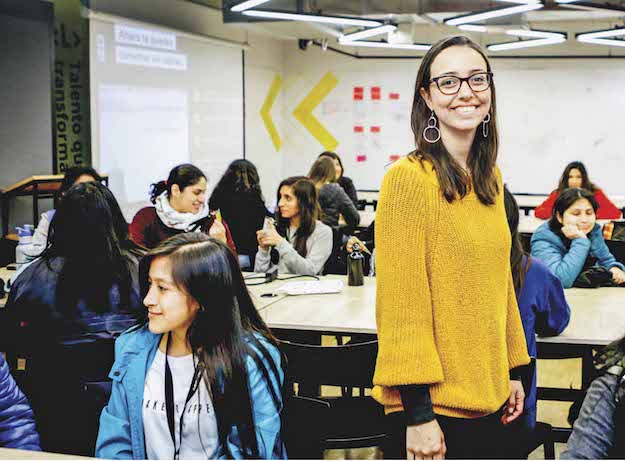
COVID-19 complicates the picture — but may also offer opportunities for women who want to follow in Olivares’ footsteps. Laboratoria’s graduates have had a harder time finding jobs during the current turmoil, but Kelly believes demand for web developers could rise in the future as the pandemic pushes more companies and industries to digitize.
The broader benefits of bridging the tech gender divide are hard to overstate. Providing equal opportunities for programming work will help ensure that women get a fair share of the spoils of the tech boom, but it’s also key to building a digital world with less of a male bias, experts say.
Mariel Quezada, a Laboratoria graduate from Chile, works for an app that lets consumers compare prices for pharmaceuticals. She said her male colleagues tend to overlook how different users might experience a product, leading to tweaks that make it accessible for more people.
“I’m always debating little things like the size of the font,” Quezada told AQ.
Ultimately, Laboratoria’s bootcamp is almost as much about personal transformations as it is about professional ones. Since working in telecommunications and later for a consultancy and a bank, Olivares has passed on new job opportunities to return to Laboratoria as a coach to help future students.
“Laboratoria forms a lot of women who want to change the world — their world and the world around them,” she said. “It might sound ambitious but that’s what it’s about.”
Students are encouraged to experiment, collaborate and take criticism and mistakes in stride. The goal is to teach them the “soft skills” needed to contribute as professionals and leaders, said Kelly. Laboratoria is now using the same techniques to offer classes to companies that want to foster a culture of continuous learning, using revenues from the service to offset its program costs.
“The first month is really, really hard because you have to change your internal chip,” said Lesly Muñoz, a new graduate who turned to Laboratoria after struggling to find a job with her psychology degree. “For so long I’d convinced myself that I couldn’t learn things in tech or engineering, but really I couldn’t learn them only because I thought I couldn’t. That change in mentality is the most important thing about Laboratoria.”
--
Taj is an independent reporter based in Lima.

